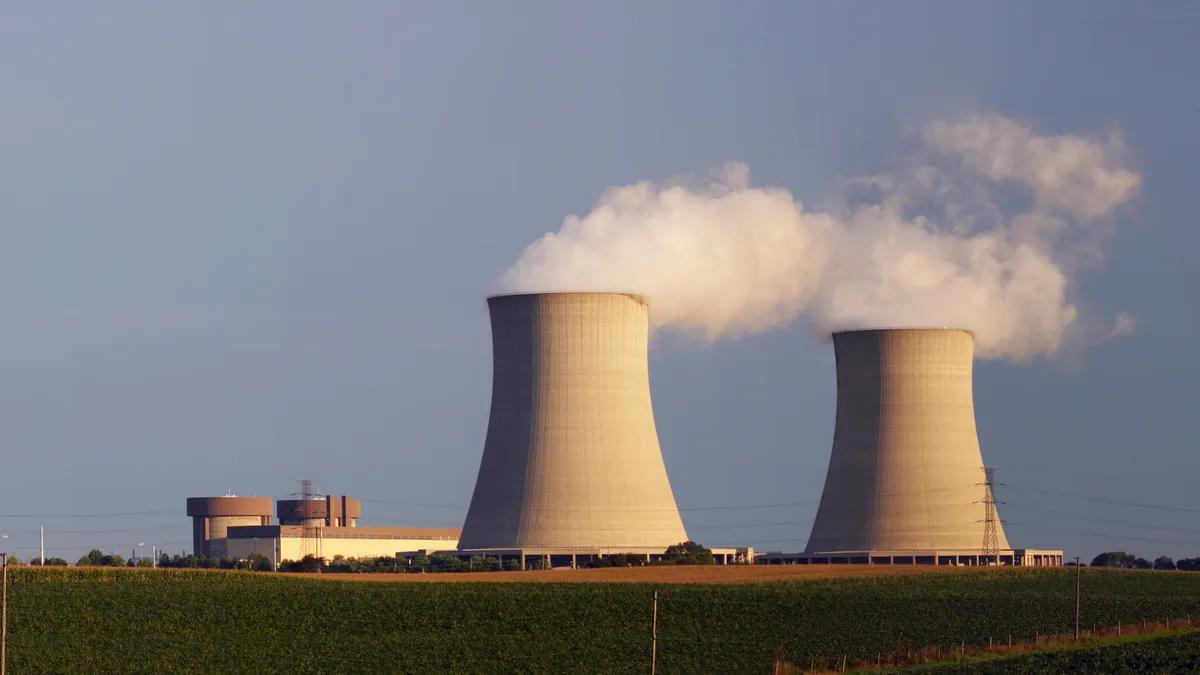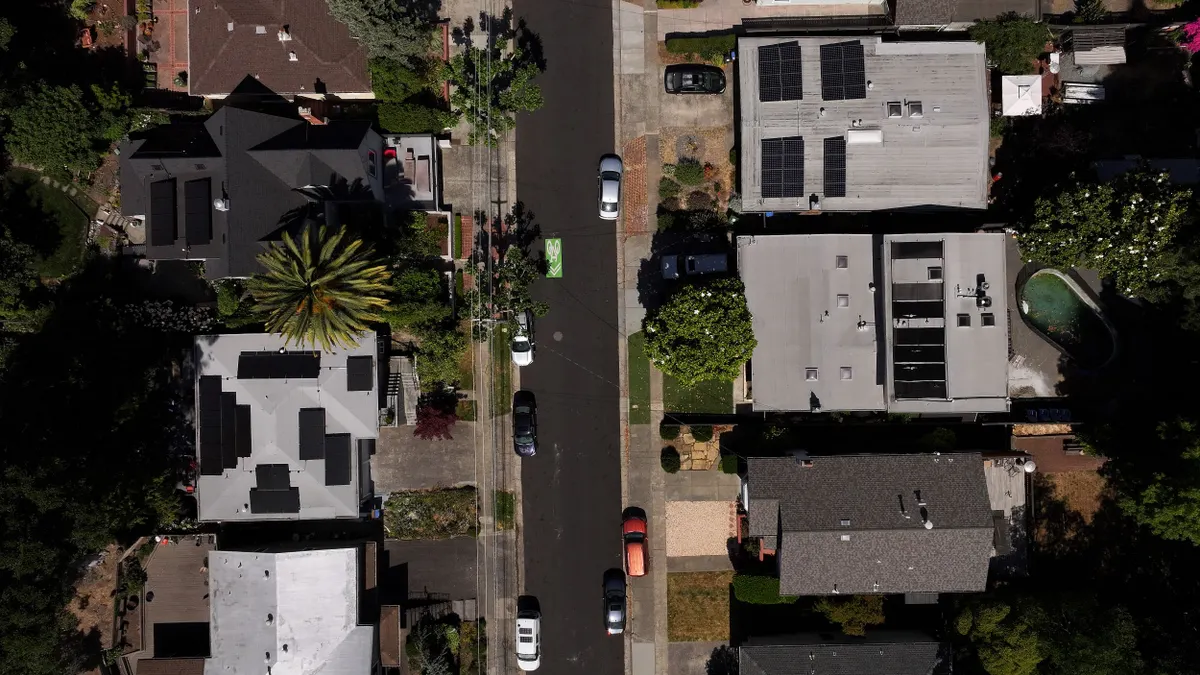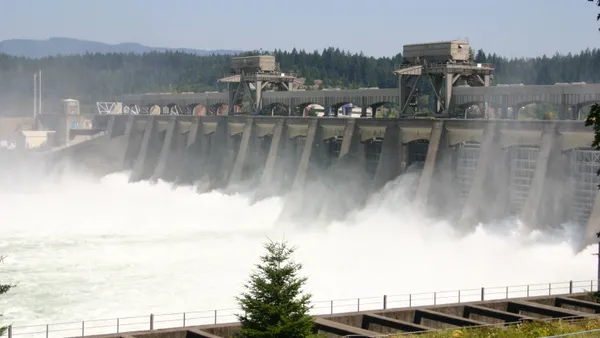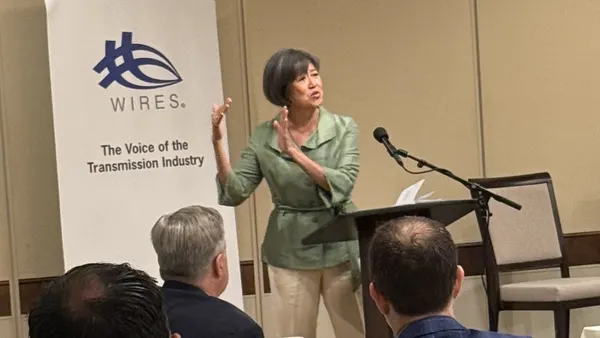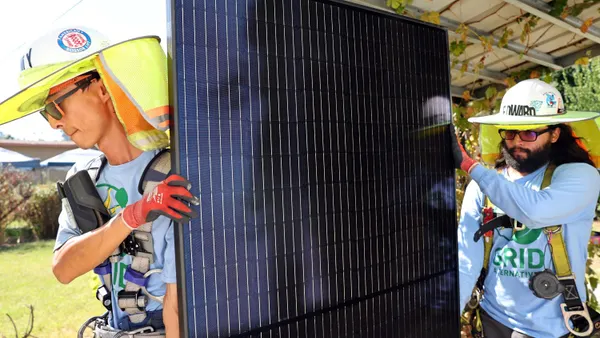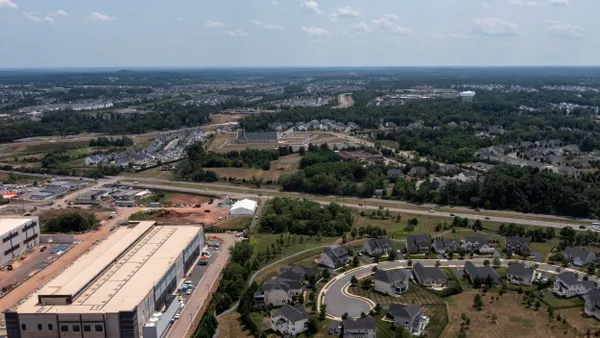Dive Brief:
- Exelon on Thursday announced it would close two of its nuclear plants totaling over 4.1 GW of nuclear power by fall of 2021, blaming in part a 2019 rule implemented by the Federal Energy Regulatory Commission that raises the bidding price for state-subsidized resources in the PJM Interconnection.
- The utility's Dresden and Byron nuclear plants "face revenue shortfalls in the hundreds of millions of dollars because of declining energy prices and market rules that allow fossil fuel plants to underbid clean resources in the PJM capacity auction," the utility said in a statement announcing the closures. "The plants' economic challenges are further exacerbated by a recent FERC ruling that undermines longstanding state clean energy programs and gives an additional competitive advantage to polluting energy sources in the auction."
- But stakeholders, including representatives from Illinois Democratic Gov. J.B. Pritzker's office, say the utility's "threats" are a thinly veiled attempt to secure more funding from the state. "First, let's remember that Exelon already receives a ratepayer-funded subsidy of $235 million ... per year to run nuclear plants in Illinois," Pritzker spokesperson Jordan Abudayyeh said in an email (emphasis hers). "While they couch their messaging in their desire for a clean energy future, their primary purpose is to dramatically increase those subsidies on behalf of their shareholders."
Dive Insight:
Exelon's announcement follows the release of a report from Gov. Pritzker's office last week outlining his goals for 100% carbon-free electricity by 2050. Among the recommendations, the report seems to reject a fixed resource requirement (FRR) plan that would further subsidize Exelon's nuclear power plants.
"The proposed FRR has been the centerpiece of current energy discussions, but the first step in that FRR is to annually pay each of Exelon's nuclear plants an amount equal to three times the current taxpayer subsidy that two Exelon plants already receive without any strings attached and without Exelon showing us their math as to why this is necessary," the governor's policy document reads.
Exelon in 2016 announced it would retire its Quad Cities and Clinton Nuclear plants by 2018 and 2017, respectively, but under a state law passed in 2016, the utility secured Zero Emissions Credits (ZECs) that have allowed the plants to continue operating. Dresden and Byron don't receive those subsidies, however, and the utility's CEO Christopher Crane has made it clear that securing those credits through the legislature is a major priority for the company.
Nuclear advocates also say keeping the plants online is crucial to the state reaching its 100% carbon-free goals.
"If the [Pritzker] administration can't support an action to specifically protect nuclear plants from PJM's failure to value firm carbon-free power, Exelon is almost certainly going to close the plants," Madison Czerwinski, executive vice president of nuclear advocate Environmental Progress, said in an email. "Illinois' clean energy goals are destroyed if these plants are lost."
But Gov. Pritzker, following recent bribery charges leveled against Commonwealth Edison, an Illinois subsidiary of Exelon, has made it clear that "the utility companies will not write the legislation to get the state" to a zero-carbon power sector, said Abudayyeh.
"We have seen these threats before, and this time Exelon's threats will need to be backed up by a thorough and transparent review of their finances – including why the profits of the company as a whole cannot cover alleged operating losses at a few plants," she said.
Exelon did not respond to request for comment on the governor's office's comments, but in a statement Crane said the utility has "opened our books to policymakers and will continue to do so for any lawmaker who wishes to judge the plants' profitability." He added the utility's announcement was "separate" from the governor's calls for policy reform, and said the company "will continue our dialogue with policymakers on ways to prevent these closures."
Dresden is licensed to operate for another decade and the Byron facility is licensed for another 20 years, according to the utility. Collectively, the plants employ 1,500 full-time workers and 2,000 supplemental workers during refueling outages, along with providing nearly $63 million in taxes annually to the state.
"We agree with Governor Pritzker that policy reform is urgently needed to address the climate crisis and advance Illinois' clean energy economy, and we support the objectives of the Governor's recent energy principles," Crane said.
Illinois is home to the most nuclear plants in the country, and in 2019 generated 12% of U.S. nuclear power, according to the U.S. Energy Information Administration. Nuclear power made up over half the carbon-free electricity in the U.S. in 2019, and retiring over 4 GW would eliminate 2% of U.S. carbon-free electricity in 2021, according to Alex Gilbert, project manager at the Nuclear Innovation Alliance.
"To put another way, that is more capacity than solar PV installed in the first quarter of 2020, and more generation than expected to come from all solar installed in 2020," he said in a Tweet.



